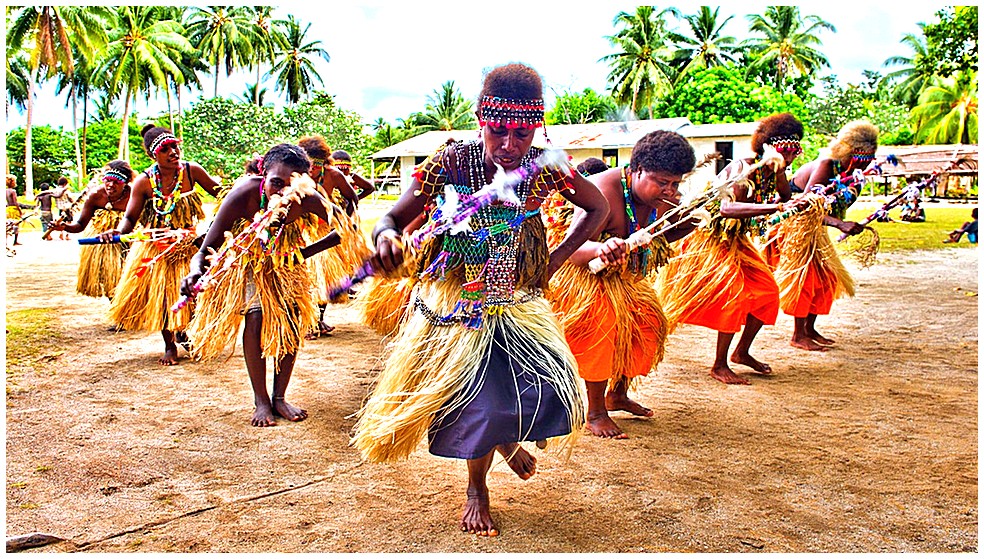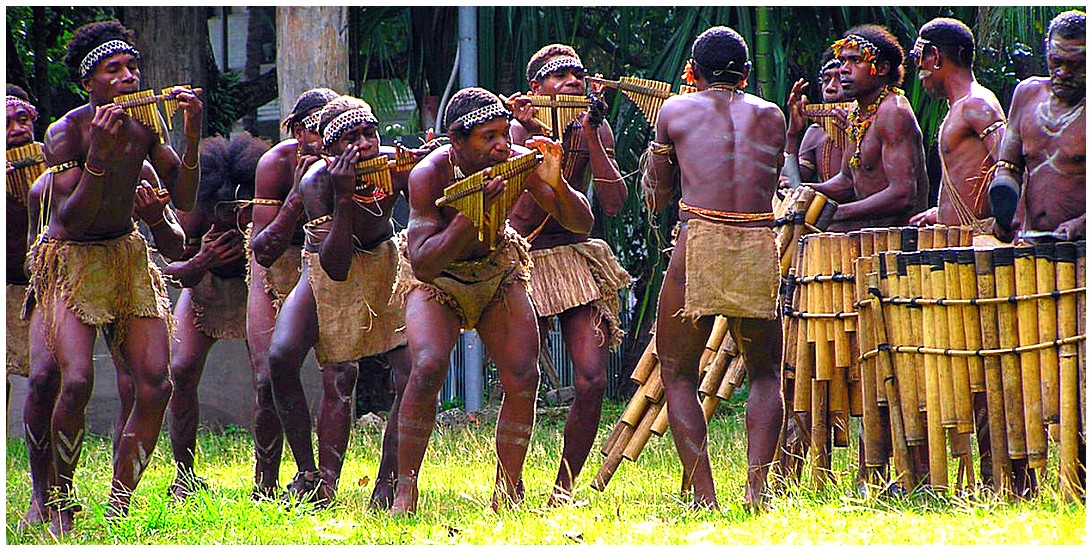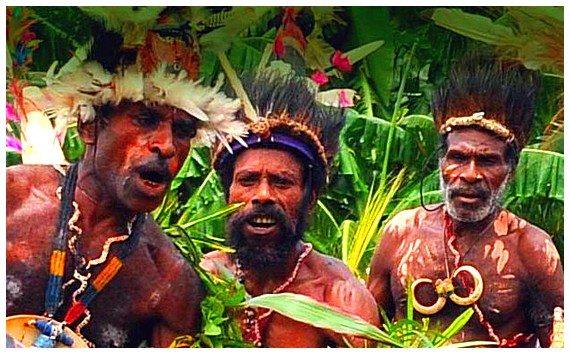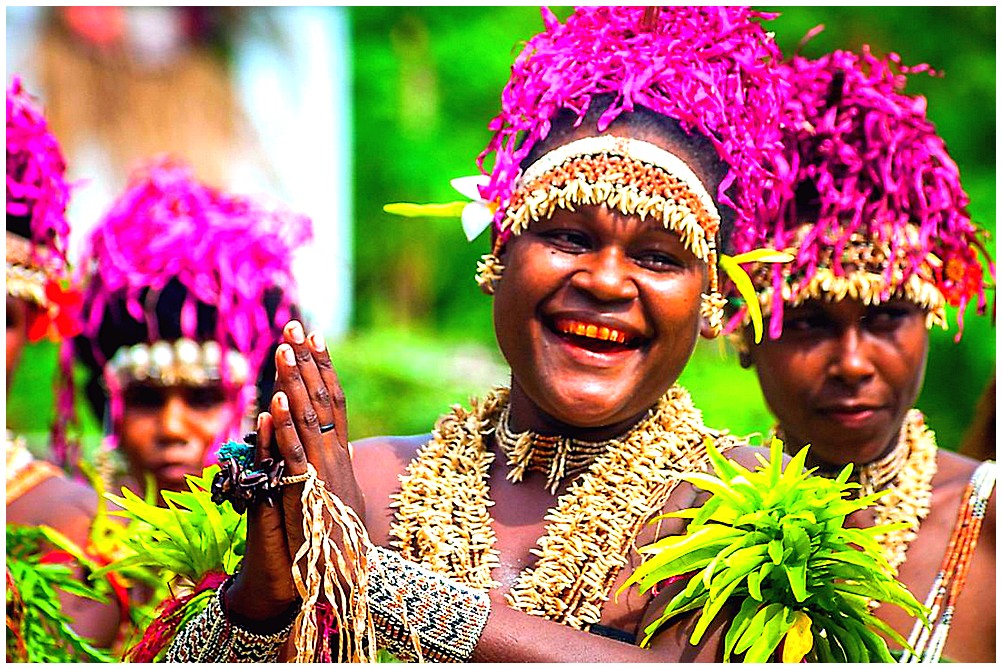Introduction to the Etoro People of the Solomon Islands

The Solomon Islands are home to a unique and vibrant culture, the Etoro people. This small group of islanders has managed to preserve their traditional customs and beliefs for centuries, despite the many changes that have occurred in the region over time. In this article, we will explore some of these fascinating aspects of Etoro culture, from their religious practices to their art forms and language. We will also discuss how they interact with other cultures in the area and how they have adapted to modern life while still maintaining their distinct identity. By learning more about this remarkable community, we can gain insight into an important part of our global cultural heritage.
Historical Background of the Etoro Culture

The Etoro people of the Solomon Islands have a long and rich history. The Etoro are believed to have been living in the area for at least 2,000 years, with archaeological evidence suggesting they were present as early as 500 BCE. They are known for their complex social structure and elaborate ceremonies that revolve around ancestor worship. In addition to these cultural practices, the Etoro also developed an intricate system of trade and bartering which enabled them to sustain their traditional lifestyle. This system was based on shell money called “tabu”, which could be exchanged for goods or services among members of the tribe.
In recent centuries, Christianity has become increasingly influential among the Etoro people due to missionary activity in the region during colonial times. Despite this influence, many aspects of traditional culture remain intact today including language, music and dance styles, spiritual beliefs and customs such as tattooing and body modification rituals. Today there is a growing interest in preserving these traditions by documenting them through research projects like this one so that future generations can learn about their heritage.
Traditional Practices and Beliefs of the Etoro People

The Etoro people of the Solomon Islands have a long and rich history that is deeply rooted in their traditional practices and beliefs. These include a strong belief in ancestor worship, as well as taboos surrounding certain activities such as eating certain foods or touching particular objects. They also practice an elaborate system of gift-giving known as ‘kula’, which helps to maintain social relationships between different clans. Additionally, they believe strongly in the power of dreams and omens, which are seen as messages from the ancestors about future events. The Etoro people also practice shamanism, where shamans are consulted for advice on matters relating to health, fertility and other aspects of life. Finally, they have a deep respect for nature and its creatures; this is reflected in their traditional hunting rituals which involve prayers being said before any animal is killed or eaten.
Rituals and Ceremonies in Etoro Society

The Etoro people of the Solomon Islands have a long history of rituals and ceremonies that are integral to their culture. These rituals and ceremonies help to define the roles, values, and beliefs within the society.
One important ritual is called “Kai” which is performed at times of initiation or death. During this ceremony, men wear masks made from pandanus leaves and perform dances around a fire while singing traditional songs. This ritual symbolizes the transition between life stages for individuals in the community.
Another significant ceremony practiced by the Etoro people is called “Tau” which marks important events such as marriages or births. During this ceremony, food is shared among family members and friends as a sign of unity and strength within the community. The sharing of food also serves as an offering to ancestral spirits who are believed to be present during these special occasions.
Finally, there are several other rituals related to fishing activities such as shark calling ceremonies where drums are used to attract sharks into shallow waters so they can be caught more easily by fishermen in boats nearby. There are also specific chants sung when harvesting yams or coconuts from gardens that serve both practical purposes (to scare away pests) but also spiritual ones (to thank ancestral spirits).
Overall, it’s clear that rituals and ceremonies play an essential role in Etoro society; not only do they provide structure for everyday life but they also connect individuals with their ancestors through song, dance, prayer, offerings and storytelling – all elements which form part of their rich cultural heritage
Gender Roles in Etoro Culture
The Etoro culture of the Solomon Islands is a unique and fascinating society that has long held traditional gender roles. In this culture, men are traditionally responsible for providing food and shelter for their families, while women are expected to take care of domestic tasks such as cooking, cleaning, and childcare. Men also have more power in decision-making processes within the family unit. This is especially true when it comes to marriage arrangements; men typically choose who their wives will be from among eligible young women in the community.
In terms of religious beliefs, both genders play an important role in Etoro spiritual life. Both men and women participate in rituals related to ancestor worship and nature spirits, though some ceremonies may be restricted by gender depending on the particular ritual or tradition being observed. Women often serve as shamans or healers due to their connection with natural forces through childbirth and other female rites of passage.
Overall, gender roles remain quite distinct within Etoro culture even today; however there has been some movement towards greater equality between genders over time as education levels rise among younger generations living in modern cities throughout the Solomon Islands region.
Social Structures and Leadership within the Community
The Etoro people of the Solomon Islands have a complex social structure and leadership system that has been in place for centuries. At the top of this hierarchy is the village chief, who is responsible for making decisions on behalf of the community. The chief is typically an elder man with a long history within the tribe and respected by all members. Below him are several other leaders including warriors, medicine men, and shamans who provide spiritual guidance to their people. Each leader has specific duties related to his role in society, such as providing protection or performing rituals.
In addition to these formal roles, there are also informal structures at play within Etoro culture. Family relationships are important and each family member holds certain responsibilities towards one another. Respect for elders is paramount in this culture; children must obey their parents’ wishes without question while adults must show respect to those older than them regardless of rank or position in society.
The Etoro also have an intricate system of trading goods between families which serves as a form of currency exchange among its members. This type of bartering allows families to obtain resources they may not otherwise be able to access due to limited funds or lack thereof altogether.
Overall, it’s clear that social structures and leadership play an integral part in sustaining traditional Etoro life on the Solomon Islands today just as they did centuries ago when first established by their ancestors many generations ago
Artistic Expression among the Etoro People
The Solomon Islands are home to the Etoro people, an indigenous group with a unique culture and language. The Etoro have a rich history of artistic expression that has been passed down through generations. From woodcarving to body painting, the Etoro use art as a way to communicate their beliefs and values. Woodcarvings are often used in rituals or ceremonies, while body painting is used for decorative purposes or during special occasions such as weddings. Music is also important in the Etoro culture; songs tell stories about life experiences and cultural practices. These musical performances can be heard at traditional gatherings where members of the community come together to celebrate events or share stories. Artistic expression among the Etoro people provides insight into their vibrant culture and allows us to better understand their customs and traditions.
Impact of Modernization on Traditional Values
The traditional values of the Etoro people of the Solomon Islands have been impacted by modernization in a variety of ways. As modern technology and globalized culture has become more accessible, it has challenged some of the core values that are integral to Etoro society. These include respect for elders, close family ties, and strong communal bonds. Additionally, changes in economic systems have led to an increased emphasis on individual achievement rather than collective success. Finally, religious beliefs have been influenced by outside forces as well, with many members converting to Christianity or other religions due to missionary efforts or exposure through media sources. Despite these changes however, many aspects of traditional Etoro culture remain intact and continue to be practiced today.
Conservation Efforts for Preserving Cultural Heritage
The Etoro culture of the Solomon Islands is an important part of the country’s cultural heritage. To ensure that this unique culture continues to thrive, conservation efforts must be taken to preserve it. Here are some ways to help protect and promote the Etoro culture:
-
Support local initiatives for preserving traditional practices and customs. Local organizations such as The Solomon Island Cultural Heritage Foundation (SICHF) work hard to support communities in maintaining their cultural identity through activities like language revitalization programs, traditional arts and crafts workshops, and more. By supporting these initiatives financially or with volunteer time, you can help ensure that future generations have access to this important cultural heritage.
-
Promote sustainable tourism in the region. Sustainable tourism helps generate income while protecting natural resources and local cultures from exploitation or degradation due to mass tourism development projects or other commercial interests. This type of responsible travel also encourages visitors to learn about different cultures without negatively impacting them by participating in activities such as homestays, volunteering at community-run projects, or taking guided tours led by locals who know how best to respect their environment and traditions when interacting with tourists.
-
Advocate for legal protection of indigenous knowledge systems within the Solomon Islands government policies and regulations . Indigenous knowledge systems contain valuable information on a variety of topics related to land management, resource use patterns, medicinal plants uses among others which should be protected from exploitation by external actors looking for economic gain without any consideration for its preservation or sustainability purposes . It is essential that governments recognize these invaluable contributions made by local people towards preserving their own cultures so they can continue being passed down through generations uninterruptedly .
By taking steps like these we can help safeguard the Etoro culture so it will remain alive for many years into the future!
Summary: Exploring a Unique Culture
This article explores the unique culture of the Etoro people, who inhabit the Solomon Islands in Oceania. The author highlights various aspects of their traditional way of life, including their spiritual beliefs and rituals, as well as their subsistence farming practices. They also discuss how these traditions have been impacted by modernization and westernization over time. Through this exploration, readers gain a better understanding of this fascinating culture and its place in today’s world.
| Etoro Culture | Other Cultures |
|---|---|
| Marriage customs are based on exchanging pigs and shell money. | Marriage customs vary widely across cultures, but often involve a dowry or exchange of gifts. |
| Belief in the power of ancestral spirits to influence daily life. | Beliefs about ancestors and their influence on daily life vary widely among cultures, from ancestor worship to ancestor veneration. |
| Traditional dances performed during rituals and ceremonies. | Traditional dances are common among many cultures, used for celebration or as part of religious ceremonies. |
What is the origin of the Etoro culture?
The Etoro culture is an indigenous group of people living in the Eastern Highlands of Papua New Guinea. They are believed to have migrated from the lowlands of West Papua and settled in their current location around 500 BCE. The Etoro people practice a traditional subsistence lifestyle, relying on hunting, fishing, and gathering for sustenance. Their cultural beliefs revolve around ancestor worship and animism, with many rituals focused on appeasing spirits that inhabit the land.
How has the Etoro culture changed over time?
The Etoro culture has evolved over time to become more inclusive and diverse. It now embraces different cultures, backgrounds, beliefs, and lifestyles in order to create a strong sense of community among its members. Additionally, the company has implemented initiatives such as gender equality policies and diversity training programs to ensure that everyone is respected regardless of their differences. Furthermore, Etoro encourages open dialogue between employees so that ideas can be shared freely without fear of judgement or discrimination.
What are some of the traditional customs and beliefs associated with this culture?
Traditional customs and beliefs associated with this culture vary depending on the specific culture. Some examples of traditional customs and beliefs include religious practices, language, clothing styles, dietary habits, music and dance forms, social norms, gender roles, family structures, rituals for special occasions such as weddings or funerals.
Are there any particular religious practices or rituals that are part of this culture?
Yes, depending on the culture in question there may be particular religious practices or rituals that are part of it. For example, some cultures have traditional ceremonies for births, marriages, and funerals; others practice certain forms of prayer or meditation; and still others observe special holidays or festivals.
How does art, music, and dance play a role in the Etoro culture?
Art, music, and dance play an important role in the Etoro culture. Art is used to express their beliefs and values, as well as to decorate their homes and ceremonial objects. Music is a major part of Etoro ceremonies, with songs that are sung by both men and women during rituals. Dance also plays an important role in Etoro culture; traditional dances are performed at festivals or other special occasions such as weddings or funerals. These dances often involve intricate footwork and body movements that tell stories about the history of the tribe or celebrate certain events.
What impact have foreign influences had on this traditional way of life?
Foreign influences have had a significant impact on traditional ways of life in many parts of the world. In some cases, foreign influences have brought new technologies and resources that can improve living standards and provide access to new opportunities. However, foreign influences can also disrupt traditional cultures by introducing different values and beliefs that may conflict with existing ones or even replace them altogether. Additionally, globalization has led to increased competition for resources which can put pressure on local communities who are accustomed to their own way of life.
How do members of this community interact with each other and outsiders to their society?
Members of a community typically interact with each other and outsiders to their society in various ways. They may engage in conversations, share stories, exchange goods or services, or participate in social activities together. Additionally, members of the community may work together on projects that benefit both the group and outsiders. Furthermore, members of the community may also provide support for one another through difficult times and offer assistance to those outside their society who are in need.
Is there anything unique about their language or dialect that sets them apart from other cultures in the Solomon Islands region?
Yes, the language and dialect of the people in the Solomon Islands region is unique. The most prominent language spoken is Pijin, which has been influenced by English and other languages from around the world. Additionally, there are several distinct local dialects that vary between islands and even villages within an island. These local dialects often contain words or phrases not found in other areas of the Solomon Islands region, making them a unique feature of this culture.

05.05.2023 @ 13:42
Spanish:
El artículo sobre la cultura de los Etoro en las Islas Salomón es fascinante. Esta pequeña comunidad ha logrado preservar sus costumbres y creencias tradicionales durante siglos, a pesar de los cambios que han ocurrido en la región con el tiempo. La historia de los Etoro se remonta a más de 2.000 años, y su compleja estructura social y elaboradas ceremonias en torno al culto a los ancestros son impresionantes. Además, su sistema de trueque basado en el “tabu” es muy interesante. Aunque el cristianismo ha influido en la cultura de los Etoro en los últimos siglos, todavía mantienen muchas de sus tradiciones, como la música, el baile, las creencias espirituales y las prácticas de tatuajes y modificaciones corporales. Los rituales y ceremonias son una parte importante de la sociedad Etoro, y el artículo describe algunos de los más significativos, como el “Kai” y el “Tau”. Es importante preservar estas tradiciones para que las generaciones futuras puedan aprender sobre su patrimonio cultural.